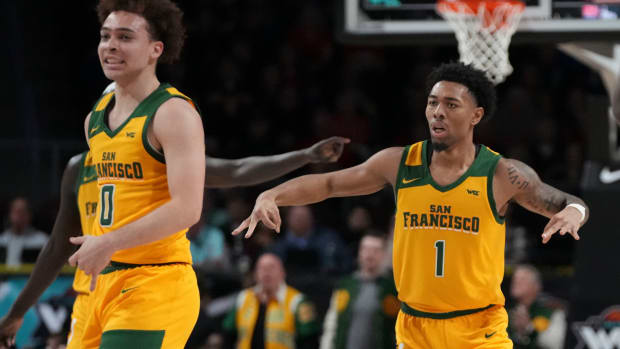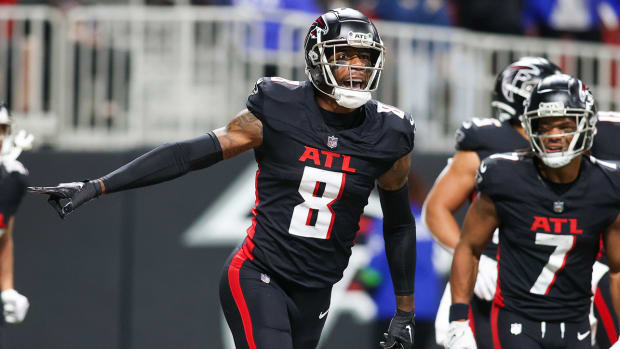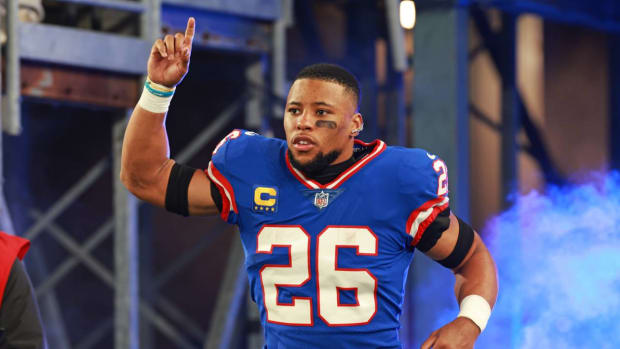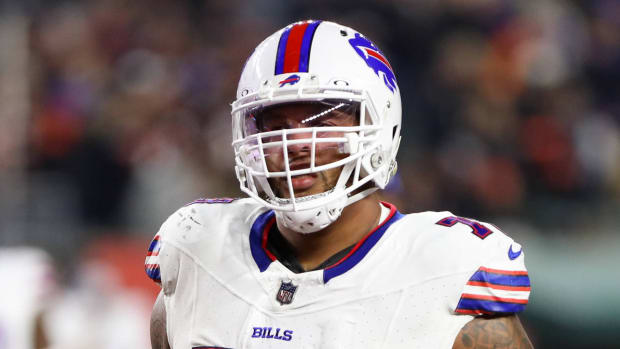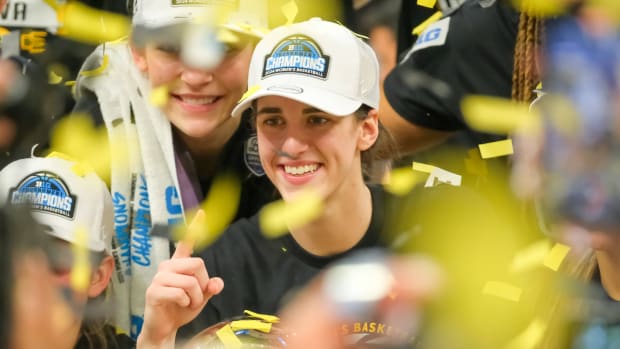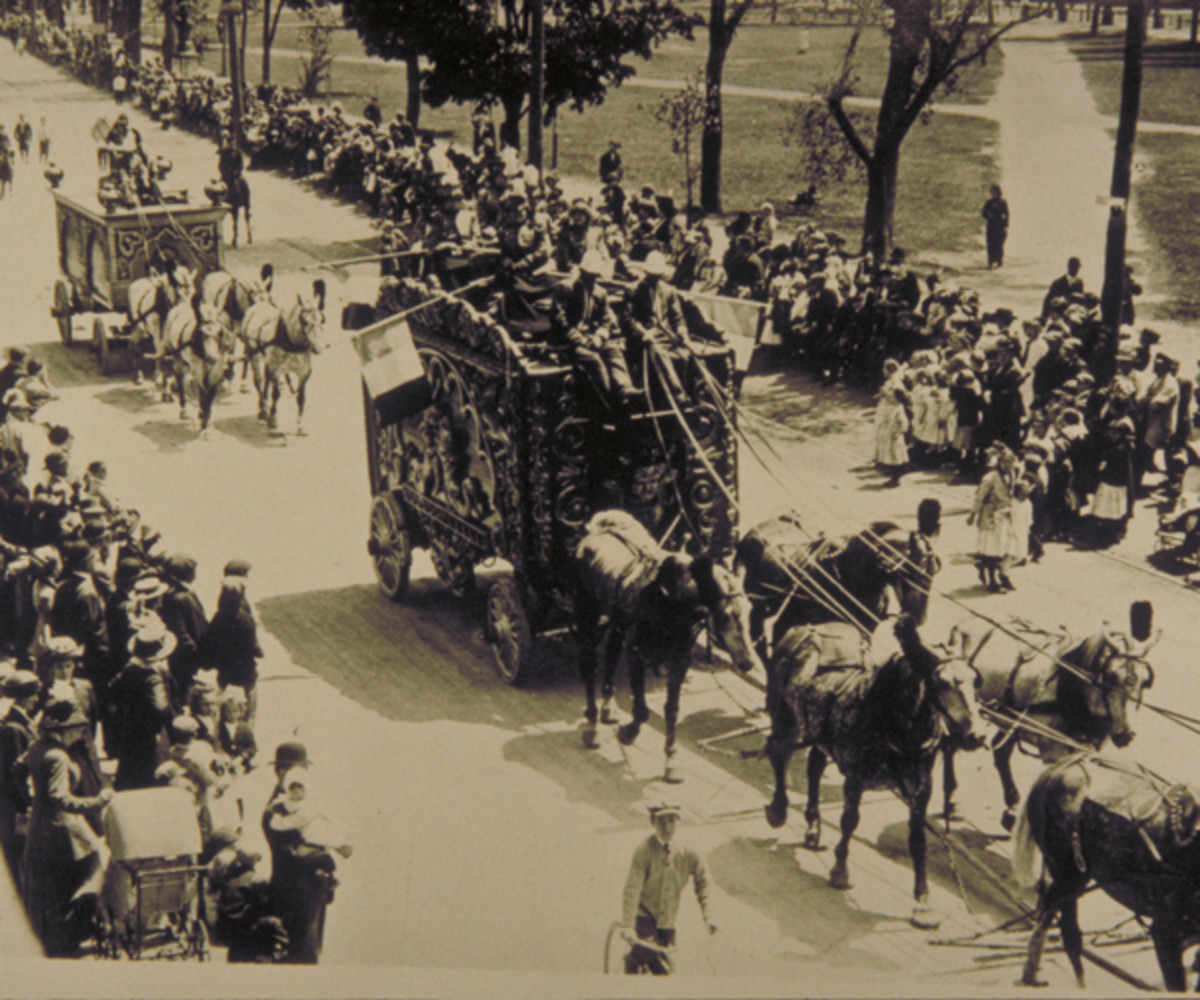
What In the Word: Everyone from Circus Freaks to Sports Fans Jumps On "Bandwagon"
P.T. Barnum's circus wagon, courtesy of Feld Entertainment.
Cody recently jumped on it.
Charles Barkley is "all-in" on it.
Jim Rome's driving it, because of course he is.
If you're on the streets of Memphis this week, you best keep your head on a swivel—otherwise you risk being blindsided by the hard-charging juggernaut that is the Grizzlies bandwagon. (Of course, if you're in Memphis at the moment, odds are you already have a seat.) Bandwagons typically take to the figurative streets whenever a scrappy underdog or small-market darling goes on an inspiring post-season run; in this year's NBA playoffs, the passenger lists in Indianapolis and the Bay Area swelled almost as noticeably as the one in Memphis.
But whereas modern bandwagons are comprised of fans who have only recently decided to direct their attention toward a spectacle, the first bandwagons were filled with people intended to attract attention themselves. The phrase originates with P.T. Barnum who, in his 1855 autobiography "The Life of P.T. Barnum", mentions a bandwagon as being the vehicle used for transporting his circus band through town: “At Vicksburg we sold all our land conveyances excepting four horses and the band wagon."
Ringling Brothers spokesperson Sarah Gmyr says the original bandwagon was one of the many wagons used daily during street parades. “Each type of Ringling Bros. wagon had a different function: baggage wagons contained props and costumes for the show, cage wagons transported animals and equipment wagons were filled with tent poles and canvas. And, of course, there were the bandwagons,” says Gmyr.
Barnum even decorated his bandwagons, which were pulled by a team of horses and driven by a teamster, with gold leaf, certainly a luxurious ride for a live band. But the Barnum band didn’t daintily sit atop the ornately decorated wagon alongside its driver. No, they belted traditional circus marches during the entire ride from the circus train right down to the show grounds.
“The bandwagons were a kind of rolling billboard, both seen and heard along the parade route as circus day arrived in town,” Gmyr says. As the parade meandered city streets, the public would join the procession, following to find out what kind of spectacle Barnum had in store. In time, political candidates began borrowing the page from Barnum’s circus strategy and often quite literally employed bandwagons when campaigning. As folks fell under their spell, they’d climb aboard the wagon to show their support of a favorite candidate. Eventually, the figurative application of the term entered the national vernacular. A dispatch written by President Teddy Roosevelt in 1899 contained the line, “When I once became sure of one majority they tumbled over each other to get aboard the band wagon.”
Joe Murphy/NBAE via Getty Images
From there it was only a matter of time before the evocative expression migrated over to the sports pages. A 1920 article from the New York Times described a pickle that gamblers found themselves in, saying:
"While it was notable last night that many who had previously bet on Cleveland were trying to hedge, in an effort at least to break even on the series, it was also noticed that some who had been riding on the Indians' bandwagon were still willing to take another chance by betting on them to win tomorrow and even up the series."
Six years later, a Timesstory about the election of Major League Baseball's commissioner contained the passage:
"Already two American League clubs and seven National have lined up with him, and the other magnates are likely to leap aboard the bandwagon, particularly since the minor leagues indicated in no uncertain terms last week that Judge Landis is the boy for them."
Nowadays everybody is on the "bandwagon" bandwagon, with the word being trotted out any time a sizable mass of unaffiliated individuals pledge their allegiance to a previously unregarded cause. The word and sentiment have achieved such ubiquity, in fact, that the term is now often used pejoratively—calling someone a "bandwagon fan" suggests that the person didn't pay their dues by following the team when it wasn't successful. It's a development that no doubt would have disappointed Barnum, who clearly saw his band wagons as agents of raucous fun. Then again, he never had to deal with Jim Rome as a driver.
Spruce Derden-USA TODAY Sports
Tim Newcomb covers stadiums, design and technology for Sports Illustrated. Follow him on Twitter at @tdnewcomb.




